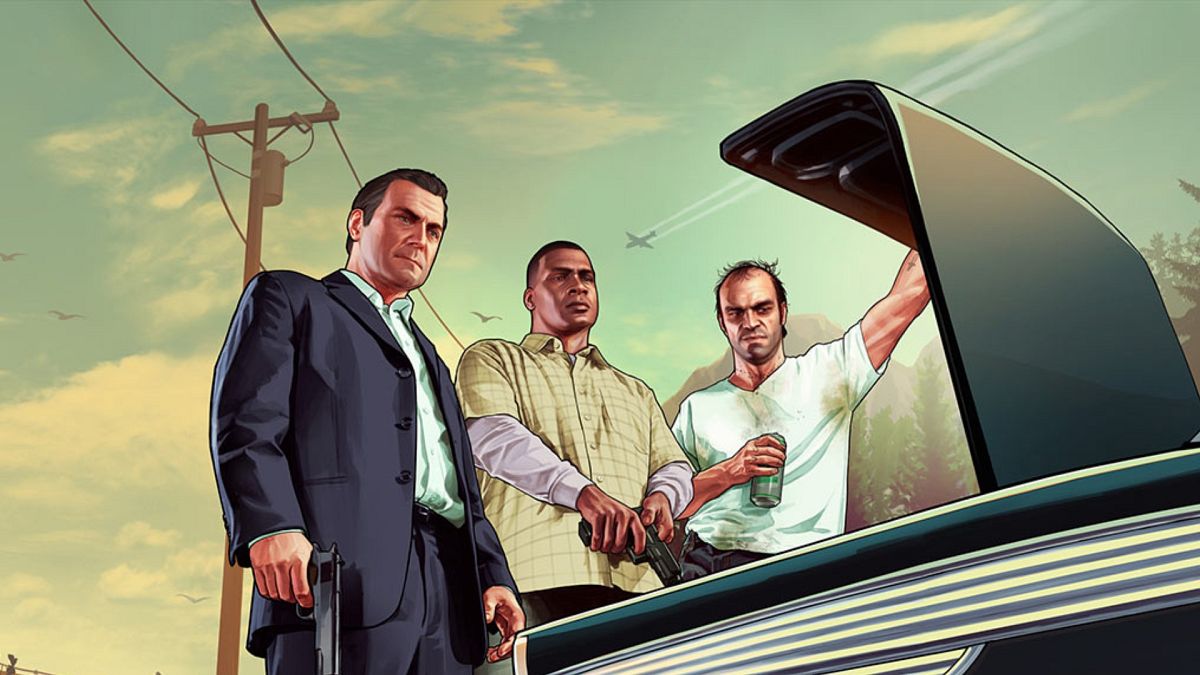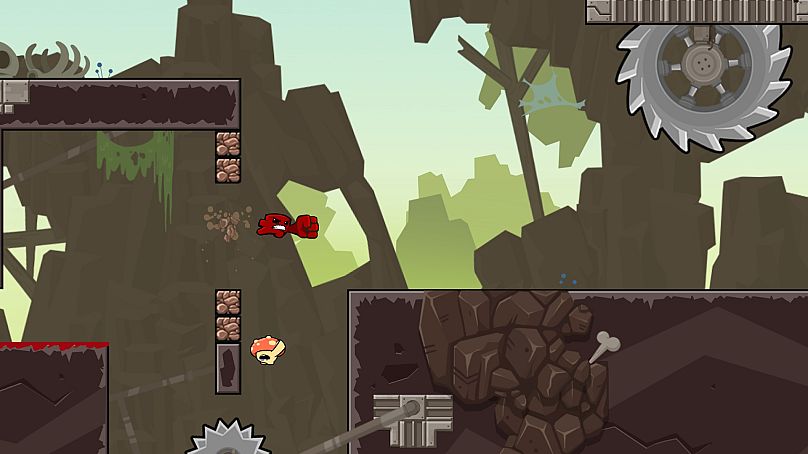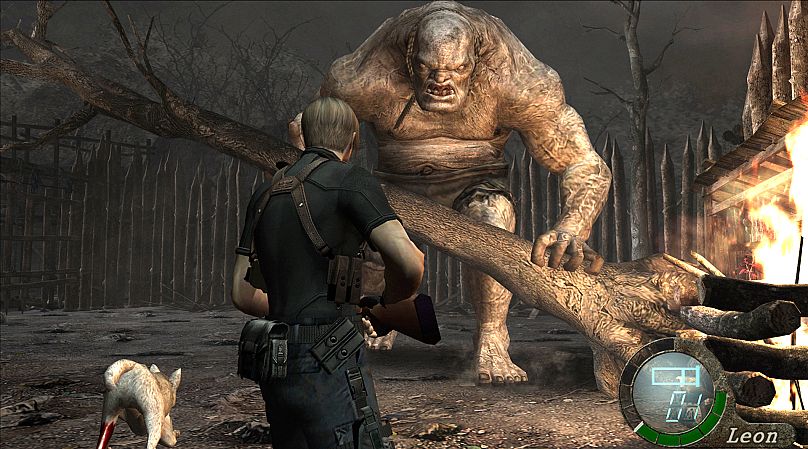Euronews Culture spoke to video game journalist Jordan Minor on his new book and why the industry is prioritising the wrong things.
Last week, Rockstar Games announced that a trailer for their upcoming game Grand Theft Auto 6 would be released this December. The news sent the gaming world into a tizzy.
While just the announcement of a trailer, it signified the first official news of a follow-up title to the immensely popular Grand Theft Auto V.
Released in 2013, Grand Theft Auto V is the second-highest selling game in video game history, and has generated over $8 billion (€7.4 billion) in worldwide revenue. Critically lauded, gamers have waited for a sequel for longer than ever.
Between 1997 and 2013, Rockstar Games released seven games from the main series, four expansion packs, and four handheld games.
After Grand Theft Auto V came out, all went quiet for the series. Rockstar has released other titles, sure, but the prevailing theory was that after making the biggest most successful open world action game in history, an adequate sequel was too great an undertaking to come fast.
It’s an industry-wide problem, argues Jordan Minor, video game journalist and author of new book ‘Video Game of the Year: A Year-by-Year Guide to the Best, Boldest, and Most Bizarre Games from Every Year since 1977’.
Consoles have gotten more and more powerful. Graphics get better and better. Game worlds are increasingly open and endlessly explorable. And all of this comes with a price. Literally. Studios spend huge amounts of money developing big titles. Grand Theft Auto V has been estimated to have cost upwards of $210 million.
Soaring costs and rising expectations have caused studios to slow down their rate of releases.
“Now, developers are only going to get out like one game for an entire console generation, and it takes them the length of it to make it,” Minor says. With fewer releases at higher budgets, studios have gotten more risk averse. “That's just not the best working environment” for game developers, Minor suggests.
In many ways, it’s a similar problem to one Hollywood is facing.
Studios have spent the last decade investing in huge tentpole blockbusters. As increasing numbers of risk-averse superhero films with huge budgets dominated the screens of the 2010s, middle-budget movies fell by the wayside. So too have we seemingly lost the art of the middle-budget video game.
Much like the film industry though, another channel of small-budget, experimental and exciting indie titles have started to gain traction.
For the 2010 chapter of the book, Minor picks out Super Meat Boy. Originally developed on Adobe Flash over three weeks and released on Newgrounds for free in 2008, the game was redesigned and released for major consoles owing to its immense popularity. Regularly hailed as one of the greatest games of all time, the 2D platformer is a perfect example of bigger not always being better.
Minor has spent a lot of time thinking about the ways the gaming industry has developed. From its humble arcade origins through to the technological explosion of 3D gaming (1992’s chapter is dedicated to Wolfenstein 3-D), Minor has observed a fascinating rapidly evolving artistic medium.
“On one hand, we’ve needed the technology to get there to give designers the freedom to express such a range of ideas,” Minor says, considering the difference in artistic qualities between Pong in 1977 and, say, Resident Evil 4 in 2005. But on the other hand, “those really dramatic shifts have slowed down.”
To focus just on graphics, there’s a law of diminishing returns in technological improvement. Doubling the definition on screen is blatant when going from 32-bit to 64-bit. It’s less obvious at the levels achieved by the current generation’s PS5 and Xbox Series X.
Other advances are covered by Minor in the later chapters. The only Pokémon game to feature in the list is Pokémon Go for 2016.
“Pokemon is a huge franchise, but I chose this as it’s a really important mobile game. It’s also important as it’s an augmented reality VR-adjacent game.”
Where is the future of gaming heading then?
From our conversation, Minor seems to point out three major strands. First is a continuation of major studios pumping out blockbuster titles infrequently. Then there are the indie darlings charming audiences. And finally there’s the rise of mobile gaming and VR technology.
While these are all likely to continue, Minor is actually hoping for something a little different.
“At some point there will need to be some kind of consumer expectation reset,” Minor says. “Not everything needs to be cutting edge.”
Minor notes on the diminishing returns issue that games from 10 years ago still look good and play well. The assumption that consumers only want increasingly complex (and difficult to design for) technology needs to be put to rest, he suggests.
“Historically, it’s rarely the most powerful console that ends up being the most popular one anyway.”
He’s right. The Nintendo Switch still sells in huge numbers and yet the games industry often argues it’s not even a part of the current technological generation. Going back, one of the most popular consoles in history, the PS2, was less powerful than both its main competitors, the Gamecube and the Xbox.
“The idea that things need to constantly be going up infinitely forever is just impossible and unsustainable,” Minor says. "We need, instead, to start focusing on quality of game mechanics instead of just expecting increasingly large game maps rendered in increasing verisimilitude."
Another issue Minor is concerned about is game preservation. “Lots of old games are great,” he says, “but companies are not doing what they need to do to make sure the games remain playable for people into the future.”
Minor’s view might be in minority when it comes to the actual developers.
Leaked documents from Microsoft point to 2028 as their planned launch date for a new generation console. Far from being a luddite, Minor accepts that it’s only natural for the technology to continue improving. The key is to find a way to make an environment that prioritises great games, instead of just great technology.
“I just want a more sustainable games industry,” Minor says.





